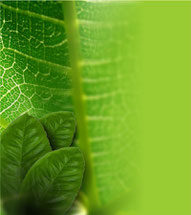
Topic III: Macromorphological characteristics of vegetative organs
Flower
See more infographics and images in the section:
What is the flower?
The flower is the reproductive organ of certain plants that produce fruits, which in turn contain the seeds. Not all plants forming seeds have flower.
The flower is always one terminal branch consisting of a modified stem: floral shaft or receptacle.
Flowering plants
Flowering plants are divided into two classes: monocots and dicots.
In the first ones, the flower parts usually appear in multiples of four or five, in the latter, the most common flower numbers are multiples of three.
Types of flowers
The most common types of flowers are bisexual or hermaphroditic (with androecium and gynoecium located in the same flower).
The flowers consist of many pieces and inserted spirally arranged independently in the floral axis, are the oldest in the evolutionary history of plants.
The composite flowers are a special case. The composite flower is not a flower, but a collection of many small florets in a common receptacle called capitula.
Flower color
The flower color is due to lipid soluble pigments present in chromoplasts and soluble vacuoles present in the petals. The anthocyanin type and degree of acidity or alkalinity define different colors:

Red color in flowers:
The presence of chromoplasts pigment or high degree of acidity.

Yelow color in flowers:
is due to flavone or flavonoid.

White color in flowers:
Presence among the cells of tiny air pockets

Purple or violet color in flowers:
Neutral acidity level.

Blue color in flowers:
Basic vacuolar solution.
The smell of the flowers
The scent of flowers has its origin in the formation of small quantities of volatile oils contained in the petals.
Natural perfumes are made from flowers like hyacinth, heliotrope, mimosa, jasmine, orange blossom, rose and violet.
The fragrances attract pollinators. Some flowers exhale putrid odor, also to attract pollinators, in this case flesh flies or other insects next to them.

 Pharmacognosy´s topics - Medicinal plants
Pharmacognosy´s topics - Medicinal plants


Write a comment
Angie Sist (Monday, 26 January 2015 02:30)
absolutely beautiful ♥ (let me know if you would like me to share on my Blogger)
Infographic Design (Thursday, 27 August 2015 11:33)
the most common flower numbers are multiples of three.
Amy@essentialoilspower (Saturday, 05 December 2015 15:07)
The information you have posted is very useful. The sites you have referred was good. Thanks for sharing..